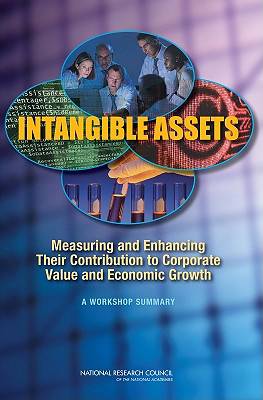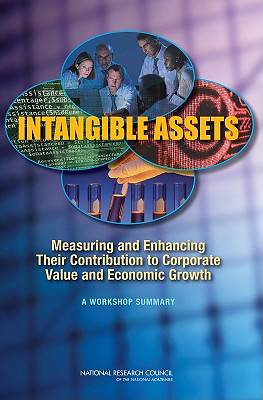
- Retrait gratuit dans votre magasin Club
- 7.000.000 titres dans notre catalogue
- Payer en toute sécurité
- Toujours un magasin près de chez vous
- Retrait gratuit dans votre magasin Club
- 7.000.0000 titres dans notre catalogue
- Payer en toute sécurité
- Toujours un magasin près de chez vous
Intangible Assets
Measuring and Enhancing Their Contribution to Corporate Value and Economic Growth
National Research Council, Division of Behavioral and Social Sciences and Education, Committee on National Statistics, Policy and Global Affairs, Board on Science Technology and Economic PolicyDescription
Intangible assets--which include computer software, research and development (R&D), intellectual property, workforce training, and spending to raise the efficiency and brand identification of firms--comprise a subset of services, which, in turn, accounts for three-quarters of all economic activity. Increasingly, intangibles are a principal driver of the competitiveness of U.S.-based firms, economic growth, and opportunities for U.S. workers. Yet, despite these developments, many intangible assets are not reported by companies, and, in the national economic accounts, they are treated as expenses rather than investments.
On June 23, 2008, a workshop was held to examine measurement of intangibles and their role in the U.S. and global economies. The workshop, summarized in the present volume, included discussions of a range of policy-relevant topics, including: what intangibles are and how they work; the variety and scale of emerging markets in intangibles; and what the government's role should be in supporting markets and promoting investment in intangibles.
Spécifications
Parties prenantes
- Auteur(s) :
- Editeur:
Contenu
- Nombre de pages :
- 124
- Langue:
- Anglais
Caractéristiques
- EAN:
- 9780309144148
- Date de parution :
- 09-01-10
- Format:
- Livre broché
- Format numérique:
- Trade paperback (VS)
- Dimensions :
- 152 mm x 226 mm
- Poids :
- 217 g

Les avis
Nous publions uniquement les avis qui respectent les conditions requises. Consultez nos conditions pour les avis.






